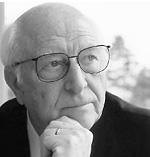What makes sense in theory doesn’t always work in real life. That’s why many of us media types have been eager for the Washington News Council—in theory, an impartial panel to referee disputes between citizens and media organizations—to actually move a complaint through its hearing process.
Well, it’s happened. Last month, the council ruled 9-6 that an October 21, 1999, Daily Olympian editorial was inaccurate and misleading.
Unfortunately, this was a lousy choice for a first case. The editorial at issue was an election endorsement, and the guy who didn’t get endorsed filed the complaint. That the news council even considered this case rankles for two reasons: 1) print journalists consider writing election endorsements to be one of their most sacred duties, and 2) editorials are supposed to be opinionated.
If that wasn’t enough, the Olympian also decided to boycott the hearing, going so far as to admonish the news council for distributing copies of the editorial itself (it’s copyrighted material, y’know).
We may soon get a better chance to see how the process works: The news council has accepted the complaint of a Mercer Island Realtor who feels a January Seattle Times story implied that he has engaged in unethical conduct.
But, based just on their initial hearing, the panel members acquitted themselves pretty well. Moderated by former Supreme Court Justice Robert Utter, the discussion was substantial and the questions were pointed. Former Seattle mayor Wes Uhlman, who has been on the other end of negative stories and editorials, proved to be the most vocal supporter of the right of the media to editorialize. “You see, ‘unfairness’ just doesn’t do it for me” when it comes to an editorial, he says. On the other hand, Seattle attorney Bill Gates Sr. doesn’t seem quite as inclined to cut newspaper editorials as much slack. “I’m disturbed by the notion that anything goes on the editorial page,” he says.
The documentary evidence, an audio tape of an Olympia City Council meeting, didn’t support the paper’s purple prose claiming candidate Bernie Friedman had “demanded to be heard,” leading to a “heated exchange” with the mayor that led to the police being called. On tape, the exchange didn’t sound particularly nasty, or Friedman’s behavior particularly unreasonable. In fact, the record supported the candidate’s claim that the mayor had promised him a chance to speak later in the meeting, then reneged. The Olympian‘s decision to play hooky also allowed Friedman’s characterizations of his exchanges with the paper’s editors to enter the record unchallenged.
“At this point, the only conclusion we’ve reached is that the paper and the Olympia City Council have a low tolerance for dissent,” said Seattle Times reporter R.T. Nelson, one of the few active journalists on the panel. He voted to reject the complaint, even though he admitted the editorial writers had been lazy in their fact-gathering.
Based on the media reaction to this first panel decision, however, there are lots of people with a low tolerance for dissent. Times columnist Mark Trahant labels the news council “a volunteer body that nominated itself” as press arbiters. The Vancouver Columbian‘s Michael Zuzel prefers the term “self-appointed busybodies” who are really “just on the side of media-bashing.” And you had to love the TV news director who was quoted as saying that there isn’t any need for a news council because Seattle media are already extremely responsive to the public. All were careful to add that, in limited cases, they certainly see the value of a news council.
Anything you say, fellas. The truth is that we self-appointed judges in the media despise the thought of anyone standing in judgment of us. Instead of boycotting its proceedings and hoping the Washington News Council will just go away, media organizations should try defending their work zealously. Remember, our credibility is on the line, too.
Updating history
In seeking potentially damning records through public disclosure, the joke among activists is that when the city asks for more time, it’s so they can write a new report.
Maybe it isn’t just a joke. When Bob Vreeland, an advocate of bringing Thornton Creek above ground across part of the Northgate Shopping Center property, requested a stream map of the Thornton Creek watershed, the copy he received was dated a week after his request was filed. A little checking revealed why: An earlier version of the map had identified the culverted section of the creek as potentially able to support salmon. Since that’s exactly the opposite of the argument the city is making in court, the earlier map would have provided ammunition to their opponents.
Remember, fish come and go, but a bigger Northgate mall is a joy forever.






